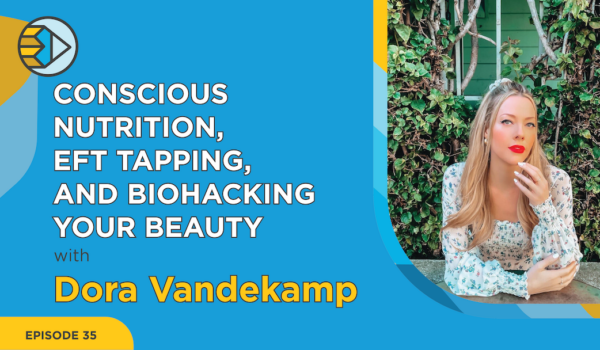
EP 52: 7 Steps for Critical Thinking
Critical thinking is important in the academic world but it can also be translated into your life and career. When you learn critical thinking it can help you take control over your own education and also have more empathy for other points of view.
Today we are giving you 7-steps for critical thinking as designed by Scheffer and Rubenfeld. Join Cath Anne on Episode 52 for more on critical thinking.
Looking for study tips, help with essay writing, or advice on how to be a better student? Welcome to The Homework Help Show, a weekly show where we teach, assist, and offer valuable insights for student life. From study hacks to writing tips, discussions about student mental health to step-by-step guides on academic writing and how to write a resume, we’ve got you covered. Want your questions answered? Write them below or join the conversation on social media using the hashtag #askHHG
TRANSCRIPT:
Cath Anne: [00:00:00] Hi guys and welcome back to our channel. My name is Cath Anne and this is Episode 52 of The Homework Help Show hosted by Homework Help Global here on the show we provide you with valuable content for your academic and student life. Let’s jump in. This day and age we always have a significant amount of information coming out of us on a daily basis in academia and in everyday life.
Cath Anne: [00:00:32] It is important to think critically about all of the information that we acquire. Critical thinking is important in the academic world but it can also translate into your everyday life as well as your career. When you learn critical thinking you can take control over your education.
Cath Anne: [00:00:52] And you will also learn to develop more empathy and understanding for a variety of different perspectives. This translates very well into the career world.
Cath Anne: [00:01:03] Everyday life as well as academia. Today we are giving you seven steps for critical thinking as designed by Schaeffer and Rubinfeld. We hope that these steps can help you to incorporate critical thinking skills into your everyday life as well as your academic career.
Cath Anne: [00:01:23] Number one is analyzing separating or breaking a hole into perks in order to discover their nature function and relationships.
Cath Anne: [00:01:34] Think of phrases like I studied it piece by piece I sorted things out. Step number two you’re looking at applying standards here you are judging information based on established professional personal or social rules. These can be things like codes of ethics social mores or even classroom guidelines. Essentially you’re taking information and applying it to a set of rules. Think of phrases like I judged it according to. A code of ethics for example number three we are looking at discriminating here. You’re looking at distinguishing differences or similarities amongst things or situations with a mind for ranking or categorizing them. Here. Discrimination does not take on a negative connotation. Rather it refers to the process of sorting out like with like. Consider phrases like I rank ordered the various, or I grouped things together.
Cath Anne: [00:02:44] Number 4 we’re looking at information seeking. Here you are searching for evidence facts or knowledge based on relevant resources your gathering objective subjective historical knowledge from the sources and identifying whether it is relevant to the topic at hand. Think of this like the process of gathering information and research prior to writing an essay. Consider phrases like I knew I needed to look up or study. I kept searching for data on.
Cath Anne: [00:03:17] Step number 5, logical reasoning drawing inferences or conclusions based on the evidence you have gathered here. Taking the information you have gathered and applying your logic to it consider phrases like I adopted from the consider phrases like I deducted from the information that or my rationale for this conclusion was essentially you’re taking the information and the data you have gathered and applying your reasoning skills to that data.
Cath Anne: [00:03:51] Step number 6, predicting envisioning a plan and its consequences here you are taking the conclusions and the information that you have already gathered and predicting what they might look like in the future. You’re also looking at what they may imply for the future. Think of phrases like I envision the outcome would be or I anticipated the following.
Cath Anne: [00:04:16] Finally, you’re looking at transforming knowledge changing or converting the condition, nature, form or function of concepts in differing contexts. Essentially you are taking all of the information and conclusions that you have drawn from the other six steps and you’re looking at how this might translate into new knowledge that we haven’t seen before. Consider phrases like I improved on the basics by or I wondered how this information might fit into such in such a context. So you’re taking the information transforming it into new knowledge and looking at how it might apply in different contexts. Pretty neat. So those are the seven steps for critical thinking. They are a little bit in depth so if you do want some more information on critical thinking we have some really great videos on the channel. In particular you might want to check out Episode 39 which discusses critical thinking as well as the course and technique. Okay that is it for me this week guys. I hope that these steps have been of benefit to you and that you might think about how to incorporate critical thinking into your own life career or your academic world.
Cath Anne: [00:05:42] If you did like this video don’t forget to give it a like and subscribe to our channel. If you have any questions or comments always jump into the comments section below. We love to hear from our subscribers. If you want to connect with us on social media or any of our other platforms all of our information is linked and listed in the description box below. Thank you guys so much for joining me on Episode 52 of The Homework Help Show. I hope these videos have been helpful for you and we will talk soon. Take care.
Share:

